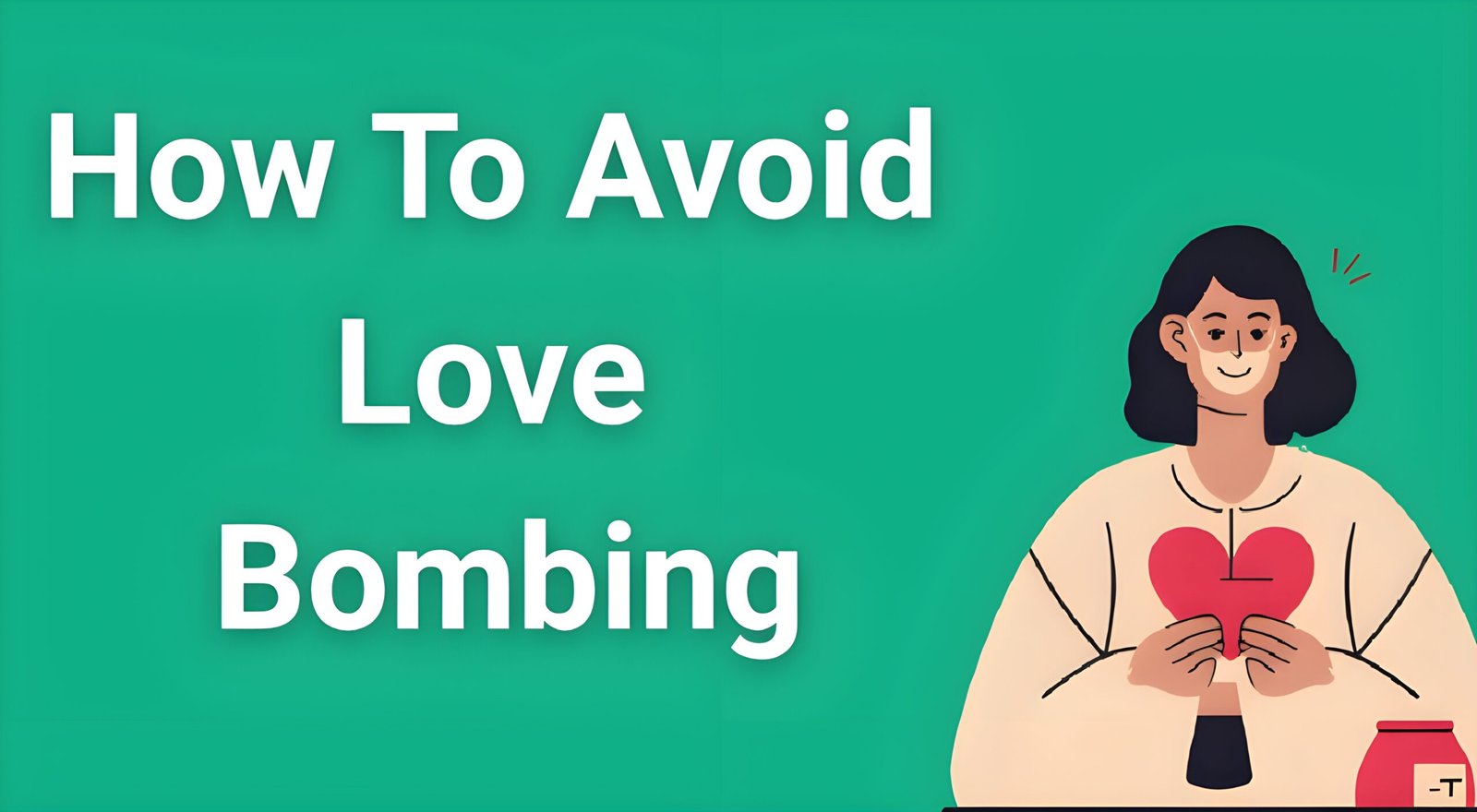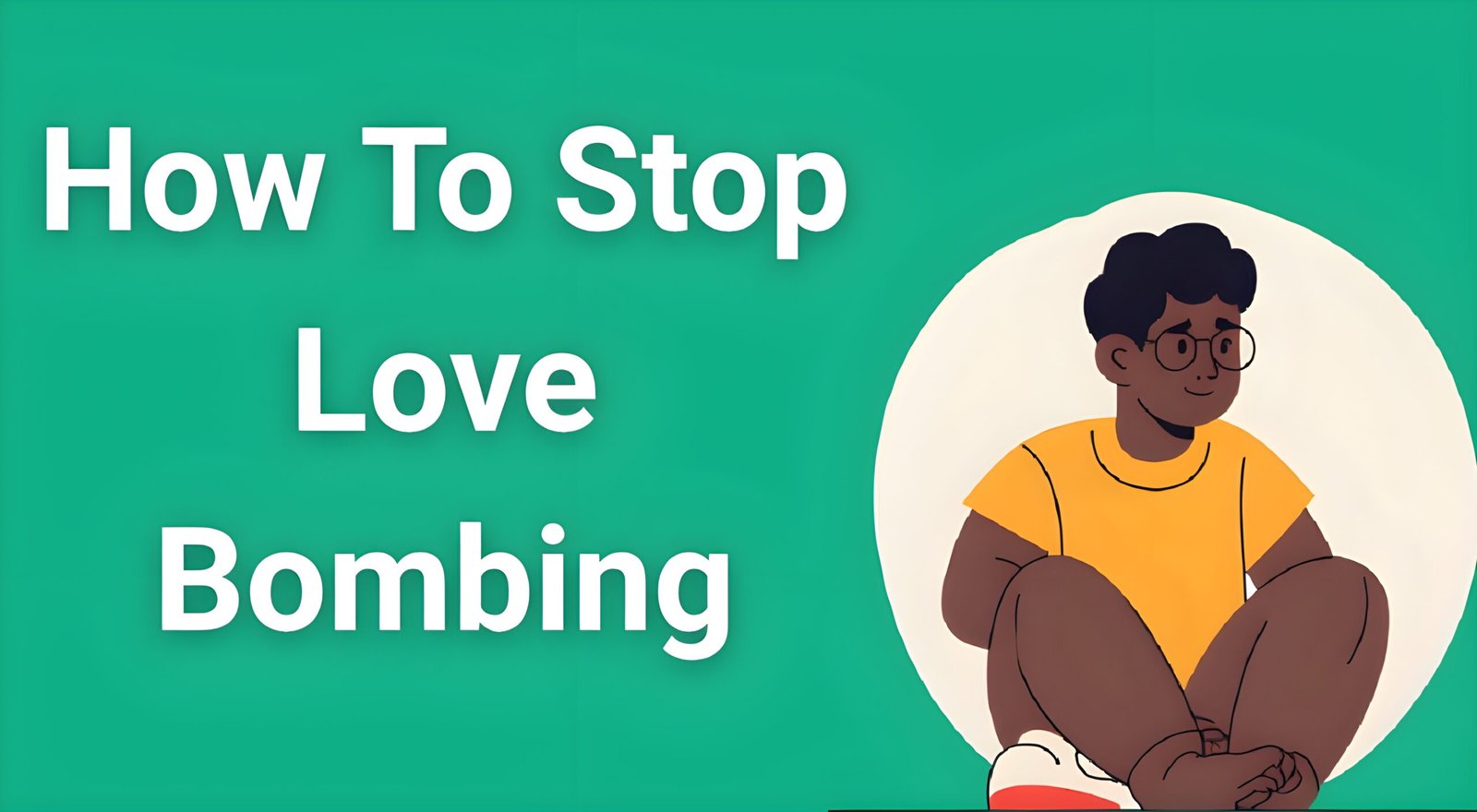Learning how to avoid love bombing could be the most important relationship skill you’ll ever develop. With 70% of people experiencing this manipulative tactic at least once in their lifetime, understanding these warning signs isn’t just helpful—it’s essential for protecting your emotional wellbeing and future happiness.
- What Is Love Bombing and Why Is It So Dangerous?
- The Devastating Statistics You Need to Know
- 12 Critical Red Flags: How to Avoid Love Bombing Before It Starts
- Evidence-Based Strategies: How to Avoid Love Bombing Effectively
- When Professional Help Becomes Essential
- Breaking Free: What to Do If You’re Already Love Bombed
- Healing and Building Healthy Relationships
- The Role of Digital Awareness in Modern Love Bombing
- Frequently Asked Questions
- Conclusion: Your Protection Plan Moving Forward
Love bombing might feel like the perfect romance at first, but behind those grand gestures and excessive attention lies a dangerous manipulation strategy designed to control and eventually harm you. The consequences of falling into this trap extend far beyond heartbreak, often leading to trauma bonds, emotional abuse, and lasting psychological damage that can affect your ability to form healthy relationships for years to come.
What Is Love Bombing and Why Is It So Dangerous?
Love bombing is a manipulative behavior pattern where someone overwhelms you with excessive attention, affection, and grand gestures early in a relationship to gain control over you. Unlike genuine romantic interest, love bombing is calculated and strategic, designed to make you emotionally dependent as quickly as possible.
Research shows that love bombers often display narcissistic tendencies and use this tactic as the first phase of an abusive relationship cycle. What makes love bombing particularly insidious is how it exploits our natural desire for connection and validation, making it incredibly difficult to recognize when you’re caught in its web.
The neurological impact is profound. Love bombing floods your brain with dopamine and oxytocin—the same chemicals involved in addiction. This creates a biochemical dependency that makes leaving feel almost impossible, even when logic tells you something’s wrong. Understanding this helps explain why intelligent, strong people can find themselves trapped in these situations.
The Devastating Statistics You Need to Know
Recent studies reveal alarming patterns about love bombing prevalence:
- 78% of dating app users have experienced love bombing
- 76% of women versus 63% of men report being love bombed
- 52% of women felt pressured into sexual activity by love bombers
- 28% of people had someone ask for exclusivity after just one week
These numbers highlight how common this manipulation tactic has become, especially in our digital dating age where connections form quickly and boundaries are easily crossed.
12 Critical Red Flags: How to Avoid Love Bombing Before It Starts
1. Lightning-Speed Emotional Escalation
When someone declares love, talks about soulmates, or discusses your future together within the first few dates, massive warning bells should sound. Genuine love develops gradually through shared experiences and mutual discovery. Love bombers skip this natural progression because their goal isn’t authentic connection—it’s control.
Pay attention to phrases like “I’ve never felt this way before,” “You’re exactly what I’ve been looking for,” or “I can’t imagine life without you” when you’ve only known each other for days or weeks. These statements are designed to make you feel special and chosen, but they’re actually red flags indicating manipulation.
2. Constant Communication Bombardment
Love bombers demand your attention 24/7 through endless texts, calls, and messages. While staying in touch is normal in new relationships, excessive communication serves a specific purpose: preventing you from having time to think clearly or maintain other relationships.
If someone becomes upset when you don’t respond immediately, questions why you were unavailable, or makes you feel guilty for having your own life, you’re experiencing communication manipulation. Healthy partners respect your need for personal space and time with others.
3. Isolation Disguised as Devotion
One of the most dangerous love bombing tactics is isolating you from your support system while making it seem romantic. They might say things like “I just want to spend time with you” or “We don’t need anyone else when we have each other.”
Love bombers often become jealous or resentful when you maintain friendships, spend time with family, or pursue personal interests. They may create conflicts around your other relationships or make you feel guilty for not prioritizing them exclusively. This isolation makes you more dependent on them emotionally and practically.
4. Premature Physical and Emotional Boundaries Crossing
Healthy relationships involve gradual boundary exploration with mutual consent and respect. Love bombers push for physical intimacy, emotional vulnerability, or relationship milestones before you’re comfortable, then make you feel uptight or uncommitted when you express hesitation.
Watch for pressure to be exclusive immediately, move in together quickly, or share deeply personal information before you’re ready. They might also show up unannounced, assume access to your personal spaces, or make decisions about your relationship without consulting you.
5. Gift-Giving That Creates Obligation
While thoughtful gifts can be lovely, love bombing gifts have strings attached. These presents are often expensive, inappropriate for your relationship stage, or given despite your expressed discomfort with receiving them.
The goal is creating a sense of debt and obligation. Love bombers often remind you of their generosity during conflicts or use their gifts as evidence of their love when you express concerns about their behavior. If gifts make you uncomfortable rather than appreciated, trust that instinct.
6. Future Faking and Grand Promises
Love bombers are master storytellers who paint elaborate pictures of your shared future without any real intention of following through. They might discuss marriage, children, dream vacations, or major life changes you’ll make together—all while barely knowing you.
This “future faking” serves multiple purposes: it makes you feel chosen and special, creates hope that keeps you invested, and establishes a fantasy that distracts from present-moment red flags. Real relationships build futures together gradually based on demonstrated compatibility and shared values.
7. Emotional Neediness Masked as Romantic Dependency
Love bombers often present themselves as emotionally fragile and completely dependent on your presence and approval. They might say you’re their “everything,” that they “can’t live without you,” or that you’re “saving” them from loneliness or depression.
While this can feel flattering initially, it’s actually emotional manipulation designed to make you feel responsible for their wellbeing. Healthy partners can function independently while choosing to share their lives with you. If someone’s entire emotional stability seems to depend on your constant availability and validation, that’s a serious red flag.
8. Mirroring Your Interests Perfectly
Love bombers are skilled at becoming exactly what they think you want in a partner. They may suddenly share all your interests, agree with all your opinions, or adopt your values and beliefs with surprising enthusiasm.
This mirroring creates an illusion of perfect compatibility, but it’s actually calculated manipulation. Pay attention to whether they maintain their own distinct personality, interests, and opinions, or if they seem to be reflecting yours back to you like a human mirror.
9. Explosive Reactions to Boundaries
How someone responds to your boundaries reveals everything about their intentions. Love bombers typically react poorly when you set limits because boundaries interfere with their control agenda.
They might become angry, hurt, or manipulative when you say no to requests, establish personal limits, or express needs that conflict with their desires. Some become cold and withdrawn, while others escalate with tears, threats, or emotional outbursts designed to make you feel guilty for having boundaries.
10. Hot and Cold Behavior Patterns
Love bombing isn’t constant—it comes in cycles. After the initial overwhelming attention, many love bombers begin alternating between extreme affection and emotional withdrawal. This creates what psychologists call “intermittent reinforcement,” which is highly addictive.
You might notice they become distant after you become comfortable, then return with renewed intensity when you start to pull away. This pattern keeps you constantly confused and working to earn back their initial level of attention.
11. Pressuring Major Life Decisions
Love bombers often push for major commitments or life changes far too quickly. They might pressure you to delete dating apps immediately, meet their family within weeks, make financial commitments together, or even relocate to be closer to them.
These premature major decisions are designed to increase your investment in the relationship and make leaving more difficult. Healthy relationships allow time for major decisions and don’t involve pressure tactics or emotional manipulation.
12. Your Gut Feeling Says Something’s Wrong
Perhaps the most important red flag is your own intuition. If something feels “off” despite the person’s outward charm and apparent devotion, trust that feeling. Our subconscious often picks up on inconsistencies and manipulative behaviors before our conscious mind can articulate them.
Many love bombing survivors report feeling overwhelmed, confused, or anxious despite the relationship appearing perfect from the outside. These feelings are often your psyche recognizing manipulation even when you can’t identify specific problematic behaviors.
Evidence-Based Strategies: How to Avoid Love Bombing Effectively
Maintain Your Relationship Pace
One of the most effective ways to avoid love bombing is establishing and maintaining a relationship pace that feels comfortable for you, regardless of pressure from your partner. Research consistently shows that healthy relationships develop gradually, allowing both people time to genuinely know each other.
Consider setting personal guidelines such as waiting at least three months before becoming exclusive, taking at least six months before major commitments like moving in together, and maintaining your existing friendships and interests throughout the early relationship period.
Practice the “Red Flag Journal” Method
Keep a private record of concerning behaviors, even small ones. Love bombers are skilled at making you question your perceptions and memories—a tactic called gaslighting. Having a written record helps you identify patterns and maintain clarity about what actually happened.
When documenting red flags, include specific dates, exact quotes when possible, and how the interactions made you feel. This practice not only helps you recognize manipulation but also provides valuable clarity when you’re questioning whether your concerns are valid.
Implement the “Support System Check”
Regularly touch base with trusted friends and family members about your new relationship. Love bombers often work to isolate you from outside perspectives because others can more easily see the manipulation from a neutral standpoint.
Ask specific questions like “Does anything about this person concern you?” or “How do you feel when you’re around us together?” Sometimes friends and family notice red flags before you do, especially when you’re caught up in the emotional intensity of early romance.
Use the “Boundary Test” Strategy
Early in any relationship, intentionally set small boundaries and observe the response. This might mean declining an invitation to spend the weekend together, taking time to respond to messages, or maintaining plans with friends despite pressure to cancel.
A healthy partner will respect these boundaries even if they’re disappointed. Love bombers typically respond with guilt trips, anger, excessive emotion, or attempts to make you feel bad for having normal limits.
When Professional Help Becomes Essential
Sometimes the manipulation is so subtle or your attachment so strong that breaking free requires professional support. If you’re struggling to leave a relationship despite knowing it’s unhealthy, experiencing anxiety or depression related to romantic relationships, or finding yourself repeatedly attracted to similar partners, working with a trauma-informed therapist can be transformative.
Many people benefit from specialized analysis of their specific situation. Understanding exactly what manipulation tactics are being used against you and why they’re effective can provide the clarity needed to break free. Professional assessment can help identify patterns you might not see and provide personalized strategies for protection and healing.
Breaking Free: What to Do If You’re Already Love Bombed
Recognize the Trauma Bond
If you’re currently in a love bombing situation, understanding trauma bonds is crucial. These are biochemical attachments that form through cycles of intensity and withdrawal, making leaving feel impossible despite logical understanding that the relationship is harmful.
Trauma bonds create a neurological dependency similar to addiction. Your brain becomes conditioned to crave the intensity of the relationship, even when it’s damaging. Recognizing this as a chemical process rather than “true love” can help you make decisions based on logic rather than addiction.
Create a Safety Plan
Leaving a love bomber often requires strategic planning, especially if they’ve isolated you or you’ve made major life commitments together. Start by:
- Rebuilding connections with friends and family
- Securing your financial independence
- Documenting concerning behaviors
- Identifying safe places to go if needed
- Developing a support network outside the relationship
Expect the “Hoover” Attempt
When love bombers sense you’re pulling away, they often escalate their efforts—a tactic called “hoovering” (named after the vacuum brand). They might return to the intense love bombing behavior, make grand promises of change, threaten self-harm, or use any available leverage to draw you back.
Preparing for this inevitability helps you stay strong during the most difficult phase of leaving. Remember that these escalations are manipulation tactics, not genuine expressions of love or change.
Healing and Building Healthy Relationships
Understanding Healthy Relationship Progression
Learning how healthy relationships actually develop can help you recognize the difference between genuine connection and manipulation. Healthy relationships involve:
- Gradual emotional intimacy that builds over months, not days
- Mutual respect for boundaries and individual autonomy
- Consistent behavior that aligns with stated values
- Encouragement of your outside relationships and personal growth
- Conflict resolution that doesn’t involve punishment or withdrawal
Rebuilding Your Trust in Intuition
Love bombing often damages your ability to trust your own perceptions and feelings. Rebuilding this trust is essential for future relationship success and involves practicing mindfulness, paying attention to your emotional responses, and learning to differentiate between healthy excitement and manipulation-induced anxiety.
Consider working with resources specifically designed for trauma bond recovery. The neurological patterns created by love bombing require targeted intervention to fully heal. Many people find that structured recovery programs help them understand and overcome the specific brain changes caused by this type of manipulation.
Developing Emotional Resilience
Building emotional resilience involves developing the skills and mindset needed to recognize and resist manipulation while remaining open to healthy love. This includes learning about attachment styles, understanding your vulnerability factors, and developing strong personal boundaries.
Recovery from love bombing isn’t just about avoiding future manipulation—it’s about creating the capacity for genuinely healthy, satisfying relationships based on mutual respect and authentic connection.
The Role of Digital Awareness in Modern Love Bombing
Social Media Surveillance
Modern love bombers often use social media to monitor and manipulate their targets. They might immediately want access to all your social media accounts, become upset about your online activity, or use information from your posts to either love bomb or later manipulate you.
Pay attention to partners who seem overly interested in your online presence, want to control your social media activity, or use information from your digital life in ways that feel invasive or manipulative.
Dating App Red Flags
Dating apps have created new opportunities for love bombers to identify and target potential victims. Be wary of matches who immediately push for intense conversation, want to move off the app quickly, or begin making grand statements about your connection before meeting in person.
Digital Boundary Setting
Establish clear digital boundaries early in any relationship. This might include keeping your social media private initially, not sharing passwords or account access, and maintaining your right to privacy around your digital life until trust is genuinely established over time.
Frequently Asked Questions
Can love bombing ever be genuine affection?
While intense early attraction can be genuine, true love bombing is distinguished by its manipulative intent and the controlling behaviors that typically follow. Genuine excitement about a new relationship includes respect for boundaries and the other person’s autonomy, while love bombing specifically aims to overwhelm and control.
How long does love bombing typically last?
Love bombing usually lasts anywhere from a few weeks to several months, depending on how quickly the manipulator feels they’ve gained control. Once they sense you’re emotionally hooked and dependent, the behavior typically shifts to the devaluation phase where the excessive attention is withdrawn.
Is it possible for someone to love bomb without realizing it?
Some people may engage in love bombing behaviors without conscious awareness of manipulation, often due to their own attachment trauma or mental health issues. However, the impact on the recipient remains the same regardless of intent, and these patterns still indicate relationship dysfunction that needs addressing.
How do I know if I’m being too suspicious in new relationships?
The key is trusting your gut feelings while maintaining healthy skepticism. If multiple red flags are present or you feel overwhelmed, anxious, or confused despite apparent romantic intensity, it’s worth taking time to evaluate the situation objectively or seek outside perspective.
Can love bombers change their behavior?
While people can change with significant self-awareness and professional help, it typically requires the person recognizing their behavior as problematic and committing to long-term therapeutic work. It’s not advisable to enter or remain in a relationship hoping someone will change their manipulative patterns.
Conclusion: Your Protection Plan Moving Forward
Learning how to avoid love bombing is ultimately about developing the skills and awareness to distinguish between healthy romantic excitement and manipulative behavior designed to control you. The key lies in trusting your intuition, maintaining your boundaries, and taking the time necessary to truly know someone before making major emotional or practical commitments.
Remember that genuine love is patient, respectful, and consistent. It doesn’t require you to abandon your support system, question your perceptions, or sacrifice your autonomy. Real love encourages your growth and independence while choosing to build a life together gradually, based on demonstrated compatibility and mutual respect.
Your emotional wellbeing and future happiness are worth protecting. By understanding these red flags and implementing the protective strategies outlined here, you’re taking powerful steps toward building the healthy, fulfilling relationships you deserve. Trust yourself, maintain your boundaries, and never settle for love that requires you to lose yourself in the process.






